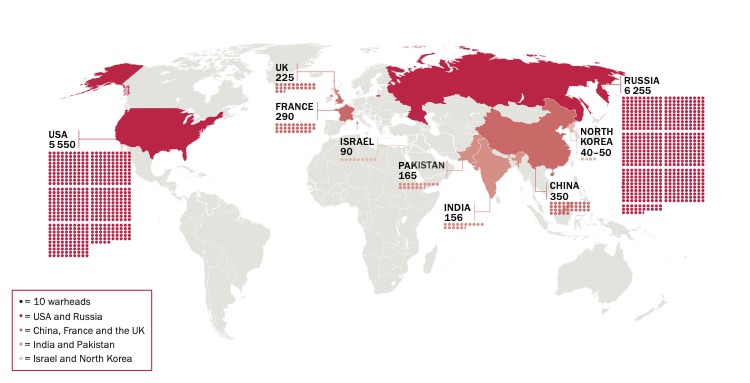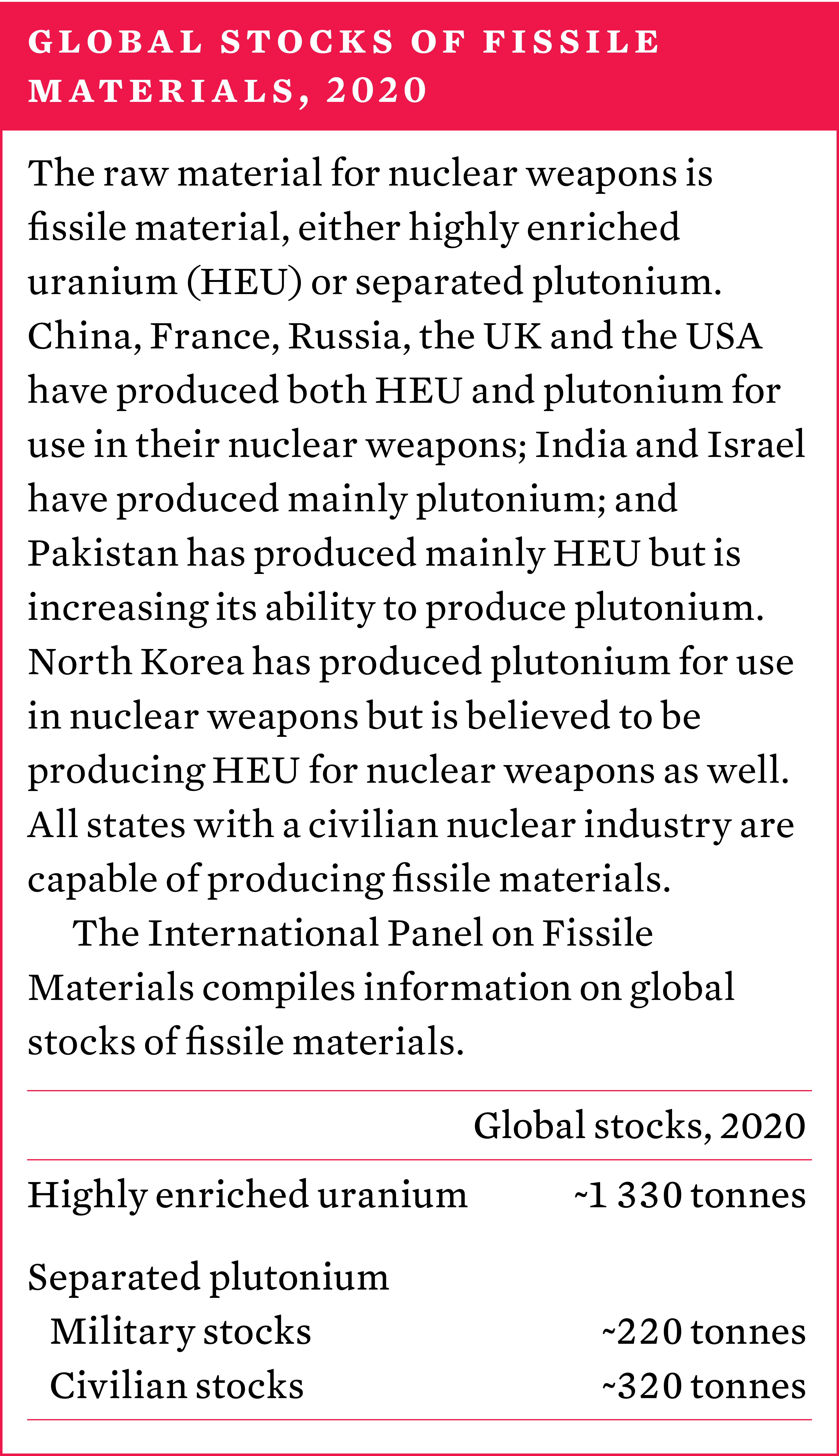10. World nuclear forces
Overview, Hans M. Kristensen and Matt Korda [PDF]
I. United States nuclear forces, Hans M. Kristensen and Matt Korda [PDF]
II. Russian nuclear forces, Hans M. Kristensen and Matt Korda [PDF]
III. British nuclear forces, Hans M. Kristensen and Matt Korda [PDF]
IV. French nuclear forces, Hans M. Kristensen and Matt Korda [PDF]
V. Chinese nuclear forces, Hans M. Kristensen and Matt Korda [PDF]
VI. Indian nuclear forces, Hans M. Kristensen and Matt Korda [PDF]
VII. Pakistani nuclear forces, Hans M. Kristensen and Matt Korda [PDF]
VIII. Israeli nuclear forces, Hans M. Kristensen and Matt Korda [PDF]
IX. North Korean nuclear forces, Hans M. Kristensen and Matt Korda [PDF]
X. Global stocks and production of fissile materials, 2020, Moritz Kütt, Zia Mian and Pavel Podvig [PDF]
At the start of 2021, nine states—the United States, Russia, the United Kingdom, France, China, India, Pakistan, Israel and the Democratic People’s Republic of Korea (DPRK, or North Korea)—possessed approximately 13 080 nuclear weapons, of which 3825 were deployed with operational forces. Approximately 2000 of these are kept in a state of high operational alert.
Nuclear arsenals
Overall, inventories of nuclear warheads continue to decline. This is primarily due to the USA and Russia dismantling retired warheads. Global reductions of operational warheads appear to have stalled, and their numbers may be rising again. At the same time, both the USA and Russia have extensive and expensive programmes under way to replace and modernize their nuclear warheads, missile and aircraft delivery systems, and nuclear weapon production facilities. For example, in 2020 the USA completed the deployment of new low-yield warheads on its nuclear-powered ballistic missile submarines (SSBNs) and made progress in its plans to field a new nuclear-armed sea-launched cruise missile (SLCM). Russia added a fourth Borei-class SSBN to its fleet, and increased its numbers of Yars and Avangard intercontinental ballistic missiles, land-attack Kalibr SLCMs and Iskander short-range missiles.
The nuclear arsenals of the other nuclear-armed states are considerably smaller, but all are either developing or deploying new weapon systems or have announced their intention to do so. China is in the middle of a significant modernization and expansion of its nuclear arsenal, and India and Pakistan also appear to be increasing the size of their nuclear weapon inventories. North Korea continues to enhance its military nuclear programme as a central element of its national security strategy, although in 2020 it did not conduct any tests of nuclear weapons or long-range ballistic missile delivery systems.
Global nuclear weapon inventories, January 2021

Low levels of transparency
The availability of reliable information on the status of the nuclear arsenals and capabilities of the nuclear-armed states varies considerably. The USA had previously disclosed important information about its stockpile and nuclear capabilities, but in 2020—as in 2019—the administration of President Donald J. Trump declined to disclose the size of the US stockpile. The UK and France have also declared some information. Russia refuses to publicly disclose the detailed breakdown of its forces counted under the 2010 Russian–US Treaty on Measures for the Further Reduction and Limitation of Strategic Offensive Arms (New START), even though it shares the information with the USA. China now publicly displays its nuclear forces more frequently than in the past but releases little information about force numbers or future development plans. The governments of India and Pakistan make statements about some of their missile tests but provide no information about the status or size of their arsenals. North Korea has acknowledged conducting nuclear weapon and missile tests but provides no information about the size of its nuclear arsenal. Israel has a long-standing policy of not commenting on its nuclear arsenal.
